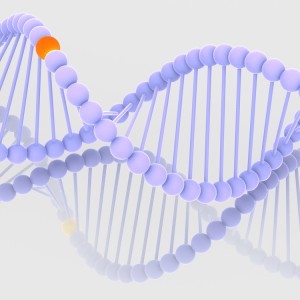 Every day we hear about a new gene that can disclose the risk of a disease. All of this information is confusing, for patients, researchers and healthcare providers. What if genetic information could be compiled into one signature of disease risk? Breast cancer researchers at the Mayo Clinic in Rochester, Minnesota, have done exactly that. In a new study that appeared April 2 in the Journal of the National Cancer Institute (JNCI), scientists combined 77 different genes to create a single risk score. The tool could be very useful for both the diagnosis of cancer and for predicting who is most likely to get the disease.
Every day we hear about a new gene that can disclose the risk of a disease. All of this information is confusing, for patients, researchers and healthcare providers. What if genetic information could be compiled into one signature of disease risk? Breast cancer researchers at the Mayo Clinic in Rochester, Minnesota, have done exactly that. In a new study that appeared April 2 in the Journal of the National Cancer Institute (JNCI), scientists combined 77 different genes to create a single risk score. The tool could be very useful for both the diagnosis of cancer and for predicting who is most likely to get the disease.
Breast cancer is next most common cause of cancer death in women after lung cancer. The chance of a woman dying from breast cancer is approximately 3%. Death from breast cancer has gone down since 1989, most likely due to earlier detection through improved screening, as well as improved awareness and treatment.
Mayo Clinic researchers studied genetic information from over 60,000 women to make what they referred to as a “polygenic risk score.” To create the score, they compiled data from 33,673 breast cancer patients and 33,381 healthy subjects. Not only did the score assist with prediction, it allowed the researchers to place different women into different risk categories, including high and low risk categories.
“This genetic risk factor adds valuable information to what we already know can affect a woman’s chances of developing breast cancer,” remarked study co-author and epidemiologist Celine Vachon, Ph.D. “We are currently developing a test based on these results, and though it isn’t ready for clinical use yet, I think that within the next few years we will be using this approach for better personalized screening and prevention strategies for our patients.”
[adrotate group=”3″]
The risk score could be added to other screening methods, to further increase the possibility of diagnosis.
According to the study co-author, Fergus Couch, Ph.D., “To do an even better job at risk prediction, we need to include this genetic profile into breast cancer risk models, along with other relevant information like family history, lifestyle risk factors, previous biopsies, and breast density. But first we need to make sure that each of the factors are independent, because if the polygenic risk score is simply repeating what was already accounted for by some of the other known risk factors then it won’t be valuable in a risk model setting.”
The National Cancer Institute and the Breast Cancer Research Foundation provided funding for the work which hopefully will help breast cancer rates to go down and allow more people to survive breast cancer.

